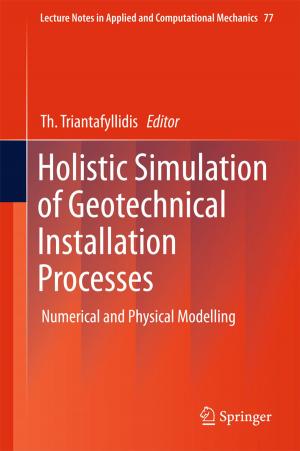Geospatial Technologies in Geography Education
Nonfiction, Science & Nature, Science, Earth Sciences, Geography, Reference & Language, Education & Teaching, Teaching, Computers & Technology| Author: | ISBN: | 9783030177836 | |
| Publisher: | Springer International Publishing | Publication: | May 21, 2019 |
| Imprint: | Springer | Language: | English |
| Author: | |
| ISBN: | 9783030177836 |
| Publisher: | Springer International Publishing |
| Publication: | May 21, 2019 |
| Imprint: | Springer |
| Language: | English |
This book addresses new pedagogies focusing on the use of geospatial technologies and geomedia in the classroom. Today, geospatial technologies are substantially influencing geography teaching and learning, particularly in secondary education. Web-GIS, virtual globes, storytelling, maps and apps for mobile devices are transforming the nature and design of geography curricula, instructional processes, didactics, resources and assessments. Undoubtedly, geography is among those school subjects that have benefited most from the implementation of new technologies in the classroom. Geospatial technologies can be used to develop inquiry-based learning or project-based learning pedagogies and help students to acquire spatial reasoning and spatial citizenship skills in the context of education for sustainable development.
This book highlights a range of initiatives, projects and educational practices – from several European countries and settings – related to geospatial challenges in geography education. Given its scope, it will be equally appealing to scientists, students and teachers of geography and other fields using geospatial technologies and geomedia.
This book addresses new pedagogies focusing on the use of geospatial technologies and geomedia in the classroom. Today, geospatial technologies are substantially influencing geography teaching and learning, particularly in secondary education. Web-GIS, virtual globes, storytelling, maps and apps for mobile devices are transforming the nature and design of geography curricula, instructional processes, didactics, resources and assessments. Undoubtedly, geography is among those school subjects that have benefited most from the implementation of new technologies in the classroom. Geospatial technologies can be used to develop inquiry-based learning or project-based learning pedagogies and help students to acquire spatial reasoning and spatial citizenship skills in the context of education for sustainable development.
This book highlights a range of initiatives, projects and educational practices – from several European countries and settings – related to geospatial challenges in geography education. Given its scope, it will be equally appealing to scientists, students and teachers of geography and other fields using geospatial technologies and geomedia.















